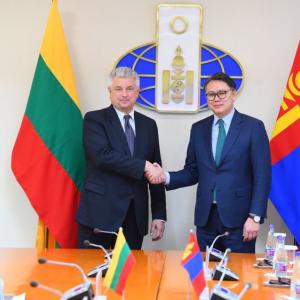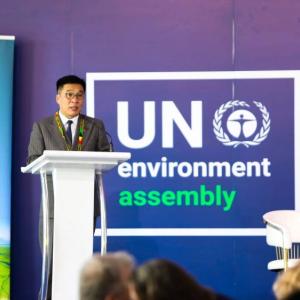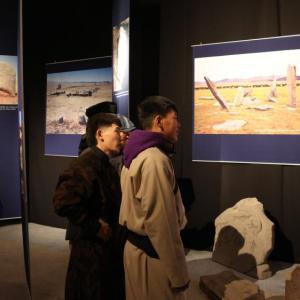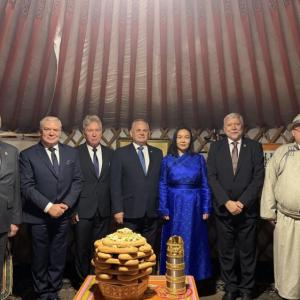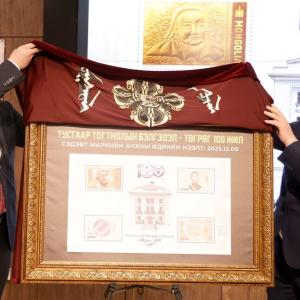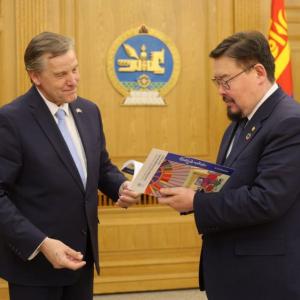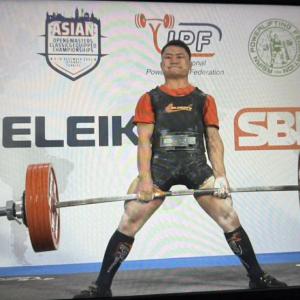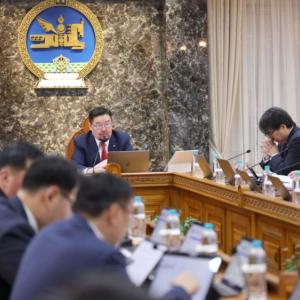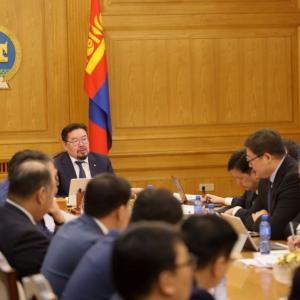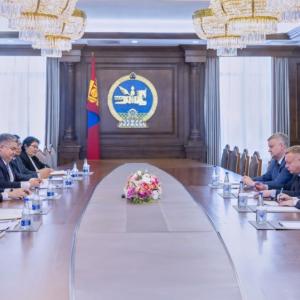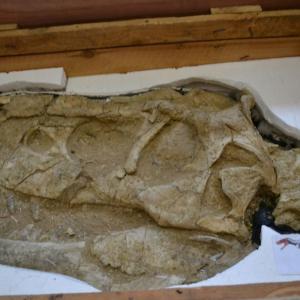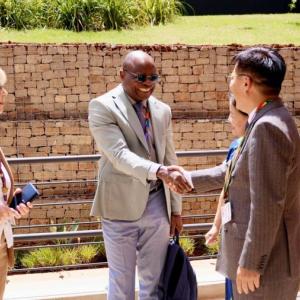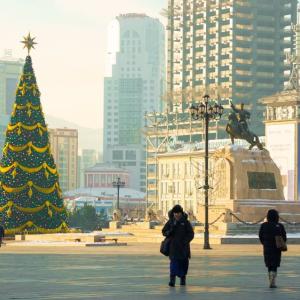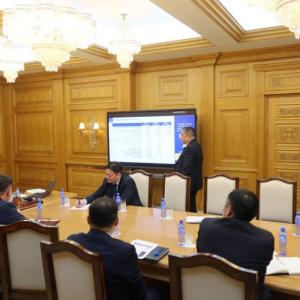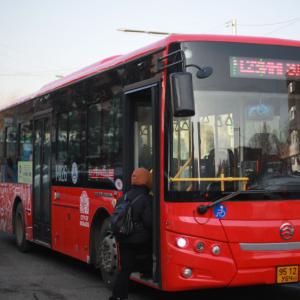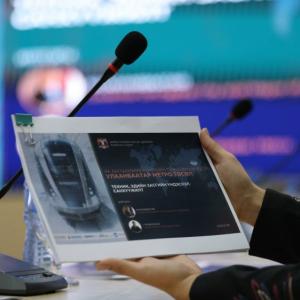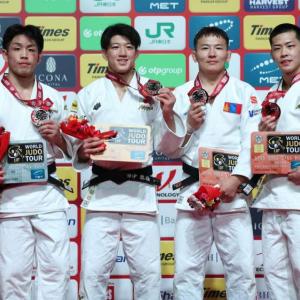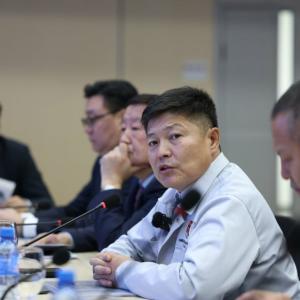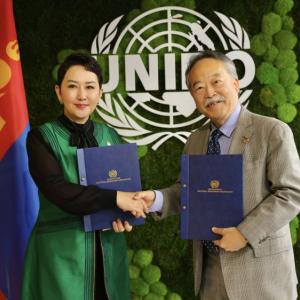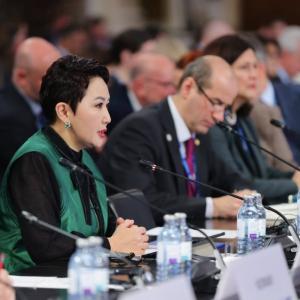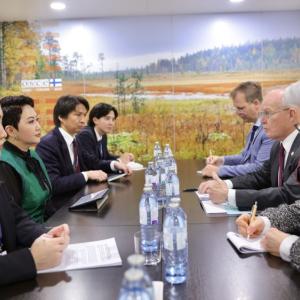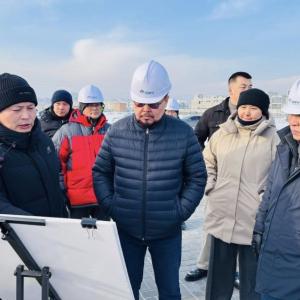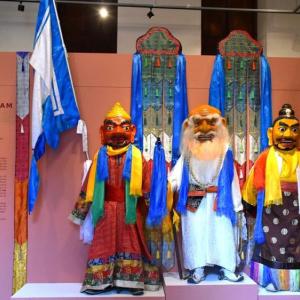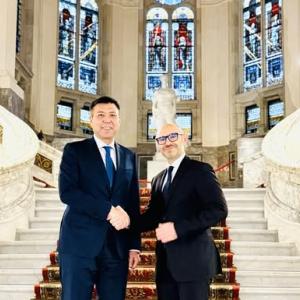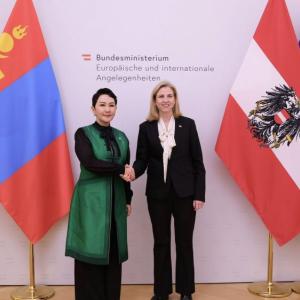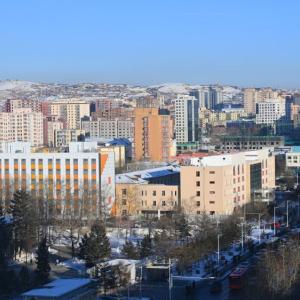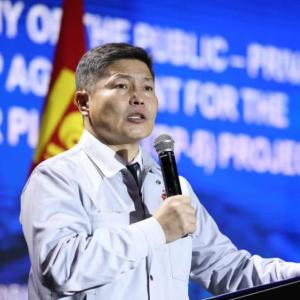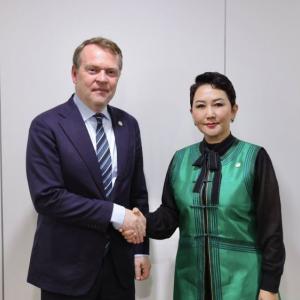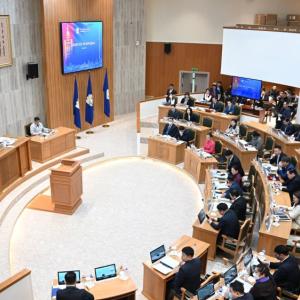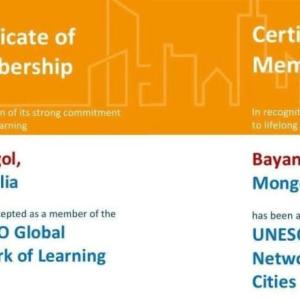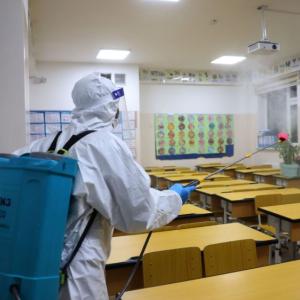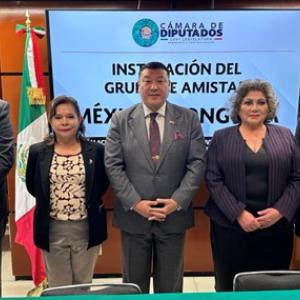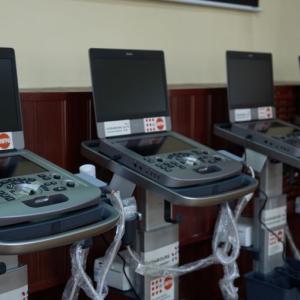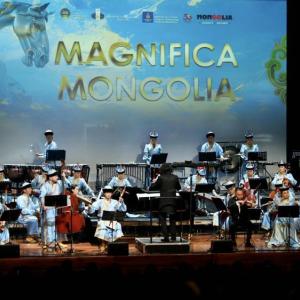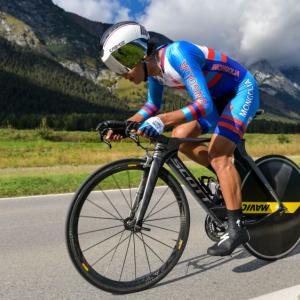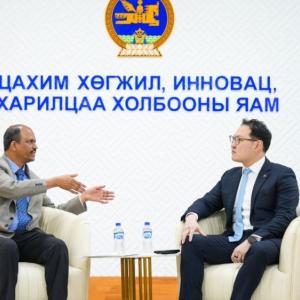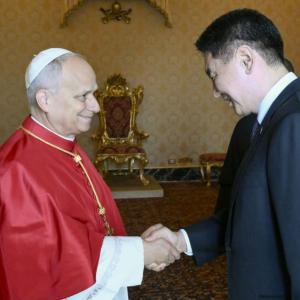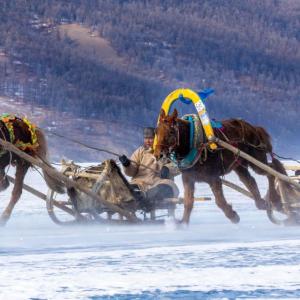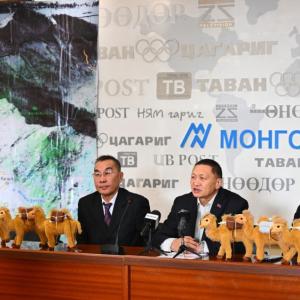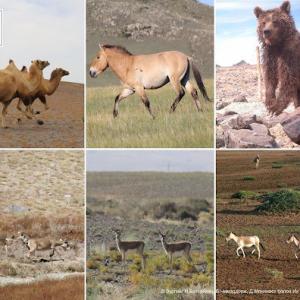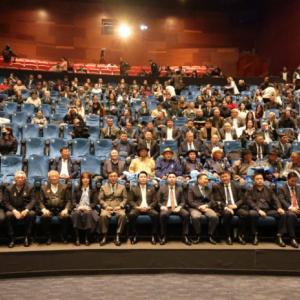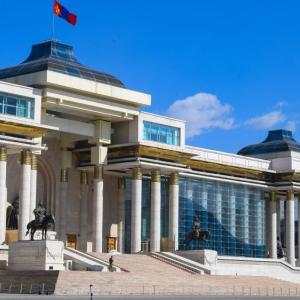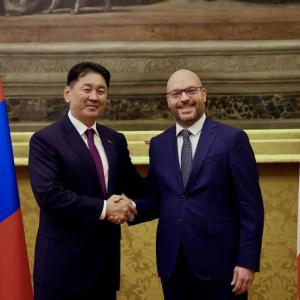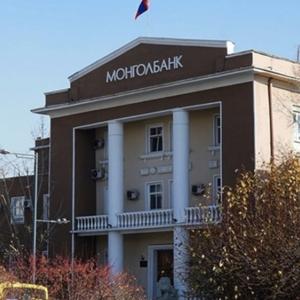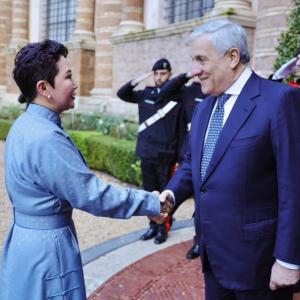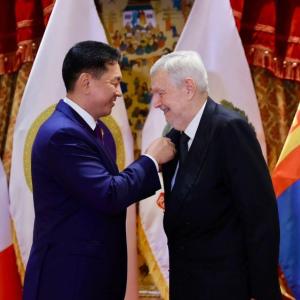From Montreal to Mongolia – An Interview with ‘Braids’
The Mongol MessengerCanadian experimental pop band Braids, comprising Raphaelle Standell-Preston, Austin Tufts and Taylor Smith, have been creating music together since 2007. Following the success of their debut album Native Speaker, released January 18th 2011, which garnered positive reviews from the likes of Pitchfork, Spin, and Rolling Stone, the band went on to release a further two albums – Flourish//Perish, released August 20th 2013, and Deep in the Iris, released April 28th 2015, which won the 2015 Juno Award for Alternative Album of the Year.
Companion, a 19-minute EP compiled from songs left off Deep in the Iris, was released May 20th 2016. Braids’ 2017 tour of Asia has seen them play Beijing, Tokyo, Osaka, Hong Kong, Macau, Shenzhen and Shanghai, and culminated on Saturday 11th March at the Gandan View, Ulaanbaatar, to a wildly appreciative audience.
I spoke to lead vocalist, guitar and keyboard player Raphaelle, and drummer and vocalist Austin, about music, muses, and Mongolia.
Q. This was your first ever concert in Mongolia. What brought you to this destination?
AT: We have a wonderful booking agent who booked us a tour in Asia to test out our new material. We’ve been trying out some new songs, and getting a chance to see the continent. It started with Japanese shows, and then Chinese shows fell in, and Mongolia was like, ‘Why not?’ My father had been here before, and he was always telling me, ‘You have to go to Mongolia! You’ll fall in love with it, it’s amazing.’ And it worked out! For some crazy reason we ended up in Mongolia, and it’s been amazing so far.
Q. Did you know anything about the Mongolian music scene before you arrived?
AT: I knew some traditional Mongolian stuff like throat-singing and Morin Khuur playing, and it’s incredible. It’s actually some of the most emotionally-charged music I’ve ever heard.
RSP: That’s cool. I should listen to it.
AT: It’s so heavy. It’s really amazing. But none of us knew much about the new music scene until Saturday night, when we saw a bunch of bands. It was really cool.
RSP: Really cool.
Q. What were your first impressions of Mongolia when you landed?
RSP: Kindness. Deep kindness.
AT: Absolutely. I was kind of shocked because as we were flying in from China, from Beijing, we were flying over mountains and it was clear skies the entire day, so the whole time we were flying we could see everything. We saw the mountain range, and then the Gobi desert, and then the mountains starting again, and it was like, ‘Oh, this is cool! There’s a little village! There’s the trans-Siberian railway!’ Then suddenly, the plane came around a mountain and we saw this sprawl of gers and yurts and tall buildings, and then the coal factories down-town.
RSP: Yeah, there was a lot of stuff all at once.
AT: It was mayhem. Like kind of disorganised, kind of organised mayhem. Houses everywhere and animals right near the airport. We were like, ‘This is so cool! This is amazing!’
Q. I hear you’ve been sleeping in a ger. How has that experience been for you?
RSP: I actually had to leave because I have really bad asthma, and I’m kind of allergic. We were in a ger that was on a farm, so I was next to all these animals. But Austin and our sound man stayed at the ger.
AT: It was incredible. It was such a beautiful experience. Just being out in the absolute middle of nowhere. And the ger is so comfortable. Incredibly comfortable. We put a big bucket of coal on the fire and closed it. The heat mellowed out, and then lasted until about 6:30am. At around 7am I woke up and my nose was really cold and my ears were cold, but I put on my toque and my long-johns and I fell back to sleep for an hour, so I was like completely sound asleep from 11:30pm to 8am.
RSP: That’s better than I had at the hotel!
AT: It was so quiet and it smelled amazing. You were just in this felt bubble! I was so happy.
Q. What did you think of the food?
RSP: I love the food here.
AT: It was so amazing. They made us mutton soup with vegetables and potatoes and it was really good.
RSP: So good.
AT: And this morning we had fried eggs in horse fat or something, some kind of fat, and it was so good, just so good. And we had the traditional fermented horse milk (airag).
RSP: It’s crazy.
AT: And the salted tea! The salty milk tea!
RSP: And the vodka is like 18%. I like that it’s not so heavy.
AT: It was very nice, very herbal. Very easy to drink.
Q. The audience at the Gandan View was really responsive to your music…
RSP: They were really responsive!
AT: Yeah, they were really cool.
Q. Did you anticipate such a good reaction in Ulaanbaatar?
BOTH: I had no expectations.
RSP: I was like, ‘We are going to the farthest place that we have ever been from Canada’, so I had no expectation. I was just excited to go to Mongolia. So yeah, it was nice that it was also a good show.
 Q. Would you say that Mongolia is a good destination for foreign artists and groups?
Q. Would you say that Mongolia is a good destination for foreign artists and groups?
AT: That’s a hard question because there’s a very small, just-starting music scene here, so it really depends if you can afford it. It’s very difficult to make up your expenses by playing this market, but I think it’s very important that bands start to come here, because it’s very difficult for the scene to grow unless they have international role models. There was an amazing sense of ‘I’ve never seen this before, I’ve never heard this before’ at our concert, which I thought was so cool because you go to Europe or North America and people are like, ‘Yeah this is great, I like this, but I’ve heard things that are wackier than this, things that are more ‘vanilla’ than this’. It was so cool coming here and feeling like we were playing the kind of music that the people there had maybe never heard before. I really enjoyed that. It was like when the throat-singers came to my house in Canada when my father was doing collaborations with them, and I was like, ‘This is crazy.’
Q. How old were you then?
AT: I was young, about fifteen.
Q. And your father was collaborating with Mongolian musicians? Can you tell us more?
AT: Yeah. So my dad is also a drummer, he’s primarily like a jazz music drummer, and that’s actually how I got hooked up with the people at the Embassy, because Deb Rasmussen works here in Mongolia, and she’s the singer in my dad’s jazz quintet. So my dad came out to play the jazz festival and they did a week-long workshop with the jazz school here, the conservatory, and then they also played shows in Beijing. He came here twice, and the musicians that he was collaborating with here were a traditional group called Alta Hangai. They came back to Canada and recorded in Calgary with my father’s group.
Q. Has your experience in Mongolia inspired you to write new music?
BOTH: Absolutely, yeah.
RSP: Yeah, because actually, riding the horses yesterday was one of the best experiences of my life. It was so amazing to be on an animal, to be in nature, with a horse guide who didn’t speak a lick of English, but who we were able to communicate with through feelings and riding the horses together. Yeah, I think it will definitely inspire us.
Q. So nature really helps?
AT: Exactly. In a big way. There’s something about being in the city that creates a deep anxiety in all of us, and as soon as we taste mountain air, fresh air, a cold stream or anything, as soon as we’re in nature, we’re so calm. It’s an amazing thing and I think it allows for deep reflection and it allows for us to absorb our thoughts and to make better music.
Q. Would you play in Mongolia again?
AT: Absolutely.
RSP: Yes! We’re talking about maybe doing Playtime Festival this year, or maybe next year. It will be fun to come back.
Q. How do you feel about where you are as a band right now?
AT: So excited. But frustrated, to be completely honest.
RSP: Yeah, frustrated.
Q. Is it too much touring?
RSP: It’s a lot of touring. I think we’re kind of unappreciated as a band. We all kind of think that we should have a bit more reach than we do, but I think that will come in time. I think that we write pretty weird music and pretty heavy music that some people really want to turn off from, that requires you to think. It’s not easy listening, so I think that with time...it’s a very slow build for us.
AT: We started very young though.
RSP: We started at seventeen.
AT: We’ve already been doing this for ten years and it’s like, most people when they start a band are our age now and they’re touring for the first time. But we’re in our mid-twenties and it’s like, ‘We’ve been touring for eight years!’ We’re starting to get tired. It’s really difficult because the comfort level of what we’re doing hasn’t really moved up that much.
RSP: It has though in comparison to Motel 6 and couch-surfing. We used to sleep in sleeping-bags on random people’s floors, and then we started sleeping at Motel 6, and in the sketchiest hotels with the grossest beds. We’re trying to keep our morale good, especially while the music industry is going through such a strange transition in terms of streaming services, and stuff which really devalues music and doesn’t pay you enough for the hard work that you put into it. And social media is also another really weird one, for the artist to have to make a product out of their band in a very obvious way that takes up a lot of your time. That’s really confusing too.
AT: But then the most exciting things I think for us are…
RSP: Coming to Mongolia!
AT: Yeah! And that now that we are much more mature as humans and as musicians, all of our skills, our experiences, our age and our maturity, are coming to a head at the same time, and it’s a very exciting thing. All the music that we’ve been writing in the studio now is so much better than anything we’ve done previously. The songs are so much stronger, more potent, and we’re way more confident and sure of our sound. We’re not trying to be weird and different for the sake of being weird and different. That’s like a teenage thing, you know? Because we started when we were seventeen years old, we were kind of going through those growing pains, and we were going through those growing pains in the public eye, which is a very bizarre thing. We put out our first record, and it saw a lot of critical acclaim, which was amazing, but it was also very confusing because we were still developing and we didn’t want to just do that sound for the rest of our lives. We wanted to change and keep growing. And so we grew and we changed, and it was a weird step.
RSP: And people were like, ‘Ugh, I don’t like that.’
AT: Yeah, like, ‘I don’t like that, why didn’t you just do that again?’ And I was like, ‘Well, because we’re nineteen years old, you know, and it’s like I’m still learning how to play the drums! I don’t want to just do that for the rest of my life, I want to keep growing’. And so we kept growing, and lyrically too, we changed so much. The whole thing has been such a journey. Now I feel like we’re finally mellowing out, and the quality level is really rising I think because of where we’re at in our personal lives.
RSP: Yeah. We’re all a lot chiller now.
AT: We’re really ready to take that next step in terms of commitment to the art, and also realising that it all comes down to just making a great record. And I think it’s taken us three albums to learn that, and that no matter how much you freak-out and worry...
RSP: About the music videos, the Instagram, having a manager, not having a manager...
AT: Yeah, all this stuff. It’s like, if you have undeniably amazing sounds that people connect with…
RSP: Everything else will just fall into place. And that’s what makes you feel the best too, because it’s work that you’re making, it’s not something that is fleeting. You’re making music that affects people, and the people you’re performing to. We have to constantly keep coming back to that, because we do everything ourselves. We do all of our music videos, we are on a DIY label that Taylor, the other member, helps run. We do all of our social media. We can sometimes get a bit carried away from the actual intent of the music. These kinds of tours actually, and the kind of experiences we’ve had in Mongolia, like yesterday’s horse-back riding, totally bring us back to like, ‘Oh yeah, we’re best friends, and our music has brought us to Mongolia.’ It gives us that energy to go back home and to write music that’s really meaningful to us.
AT: But being in the studio in Montreal in the winter has been very difficult.
RSP: It is hard.
AT: But there’s also this weird energy. You get really down and you get really upset, and we have a big fight and blow up, and then we come back together and write the best song we’ve ever written. So yeah, it’s like this weird ‘burn the forest down’ kind of thing that happens in the winter.
RSP: It’s really intense. I’m sure you can relate, being in Mongolia. It gets hard in the winter time.
AT: Where we come from, Calgary, Alberta, is almost identical to Ulaanbaatar. Geographically, it’s very similar. It’s very close to the mountains.
RSP: It’s not quite as close as this, but you can see the mountains in the distance.
AT: And if you look at the weather any time of the day between Ulaanbaatar and Calgary, Alberta, it’s almost exactly the same.
Q. What’s the next step for Braids? Are you creating a new album?
RSP: Yeah, we’re going to go back and continue working on songs.
AT: We’re going to make a hit, basically.
RSP: Yeah, we’re going to make a hit record!
AT: That’s the next stage.
RSP: Yeah, we’ll make something really good, I’m pretty sure of it.
By Rosalind Perrett
 Ulaanbaatar
Ulaanbaatar





